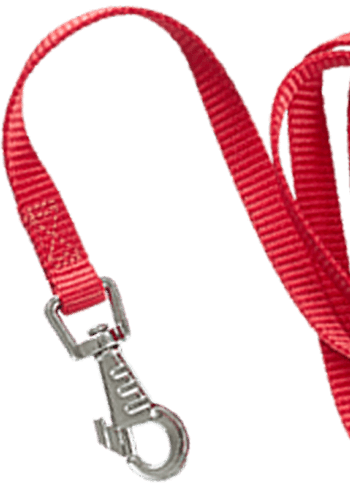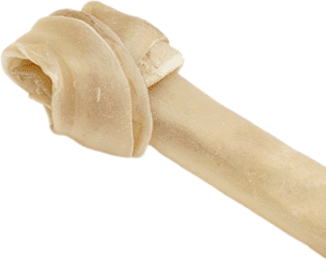


Dog chews can be a lifesaver. They soothe teething puppies, occupy anxious dogs, clean teeth, and even provide vital nutrients. But not all chews are created equal—and choosing the wrong one can lead to broken teeth, digestive issues, or expensive vet bills. Whether you’re new to dog ownership or looking to upgrade your current routine, this guide will help you confidently pick the safest, most effective chews for your pup. (And yes, this absolutely includes your White Lab or English Cream Retriever—those gentle giants deserve the best too!)
Every dog is different, and their chewing preferences evolve with age. Puppies typically need softer, pliable chews that soothe their gums and satisfy their urge to chew everything in sight. Older dogs may prefer gentler options that don’t stress aging teeth. Meanwhile, power chewers—think German Shorthaired Pointers, German Shepherds, and yes, even some Labradors—require tougher, longer-lasting chews that won’t be devoured in seconds.
Pay close attention to how your dog chews: do they gnaw gently or crush with full force? Matching the texture and durability of the chew to your dog’s style prevents both frustration and injury.
The ingredient list on a chew is just as important as the ingredients in your dog’s food. Look for natural, limited-ingredient chews with no artificial colors, flavors, or preservatives. Products made in the U.S., Canada, or countries with strict safety regulations are generally a safer bet.
For dogs with sensitive stomachs, this step is especially critical. Avoid chews with vague labeling or questionable additives. Clean ingredients lead to better digestion, cleaner nutrition, and fewer allergy flare-ups.
Not all chews serve the same function. Some are designed specifically to help remove plaque and tartar, while others are better suited to keeping your dog mentally stimulated for long periods. Then there are chews that are simply treats—great for positive reinforcement but not meant for extended chewing sessions.
If your goal is quiet time during a Zoom meeting, a long-lasting chew may be ideal. If it’s just to reward a good sit-stay, a quick, tasty treat may be all you need. For chill breeds like white Labs, who love to hang out but still enjoy a satisfying chew, consider rotating between purposes to keep things fresh.
Hard chews like marrow bones and antlers are often marketed as natural and long-lasting, but they come with serious risks. These items are extremely dense and can easily cause cracked or broken teeth—even in strong-jawed breeds.
While some dogs may tolerate them without issues, any dog can be at risk of damaged molars or intestinal problems from splintering. There are much safer options on the market that provide the same level of chewing satisfaction without the dental dangers.
Rawhide is one of the most controversial chews on the market. Though inexpensive and widely available, it is often bleached, chemically treated, and very difficult to digest. Dogs may chew off large pieces that swell in the stomach or become lodged in the intestines.
Breeds like white Labs, with their strong appetites and loyal chewing habits, can be especially prone to swallowing pieces too soon. Look for safer alternatives made from whole food ingredients. You’ll protect your dog’s health and avoid unnecessary vet visits.
Giving a small chew to a large dog—or even the right chew without supervision—can be dangerous. If the chew is too small, it becomes a choking risk; too large, and it may cause jaw fatigue or frustration.
A helpful rule of thumb: your dog shouldn’t be able to fit the entire chew between their back jaws. That’s where their chewing power is strongest, and we want to avoid putting excessive pressure on those molars to prevent fractures or injuries.
Always supervise your dog during chew time, and remove the chew once it becomes small enough to swallow. Safety comes first—satisfaction is a close second.
Made from a mix of yak and cow milk, these chews are tough but digestible, making them ideal for medium to large breeds who love a long-lasting challenge. They’re low-odor, stain-free, and free of preservatives or artificial ingredients.
Bonus: When the chew gets small, you can microwave it for a few seconds and it puffs into a crunchy treat—no waste! Yak chews are one of our top picks for dogs who love to gnaw but need something safer than bones or antlers. Even calm breeds like English Creams enjoy the occasional challenge—and these chews hold up without posing a risk to their pearly whites.
Bully sticks are a longtime favorite among dog owners—and for good reason. They’re made from 100% beef muscle, making them a highly digestible, protein-packed option. Unlike rawhide, they break down easily in the digestive system and rarely cause intestinal blockages.
Bully sticks come in a variety of lengths and thicknesses, making it easy to match them to your dog’s size and chewing style. For white Labs and English Cream Retrievers who may not be extreme chewers but still enjoy a good gnawing session, bully sticks offer a perfect mix of flavor, satisfaction, and safety.
As always, supervise chewing and discard any leftover nubs to prevent choking.
Unlike rawhide, collagen chews and tracheas are more digestible and offer added health benefits. Collagen supports joint health, skin elasticity, and digestion. Beef tracheas, in particular, are rich in natural glucosamine and chondroitin—key nutrients for supporting joint health, especially in growing puppies and aging dogs.
One of the best things about beef tracheas is their versatility. Because they’re hollow, they can be stuffed with pet-safe fillers to create a more enriching experience. Try packing them with plain canned pumpkin, a scoop of wet dog food, or soaked kibble (just add warm water or low-sodium broth to your dog’s kibble and let it sit for 15–20 minutes until soft). Cottage cheese is another fun option that many dogs love. Once filled, you can freeze the trachea for an even longer-lasting chew—perfect for teething puppies or dogs who need extra mental stimulation.
There’s more to a chew than just keeping your dog busy. The right chew supports dental health, satisfies natural instincts, and can even improve digestion and joint health. But safety always comes first.
Avoid outdated options like rawhide or antlers, and instead focus on chews made from digestible, natural ingredients tailored to your dog’s size and chewing habits. Breeds like English Creams and white Labs might not be as intense as a Malinois or GSD, but they still benefit from thoughtfully chosen chews that meet their unique needs.
When in doubt, consult your vet or a trusted pet nutritionist. With a little thought and the right product, chew time can be one of the healthiest, happiest parts of your dog’s day.
Are you thinking about getting a White Lab puppy or and English Cream Golden Retriever? Come visit Snowy Pines White Labs at our Ozark home or view our puppy live stream to see healthy dogs in action.